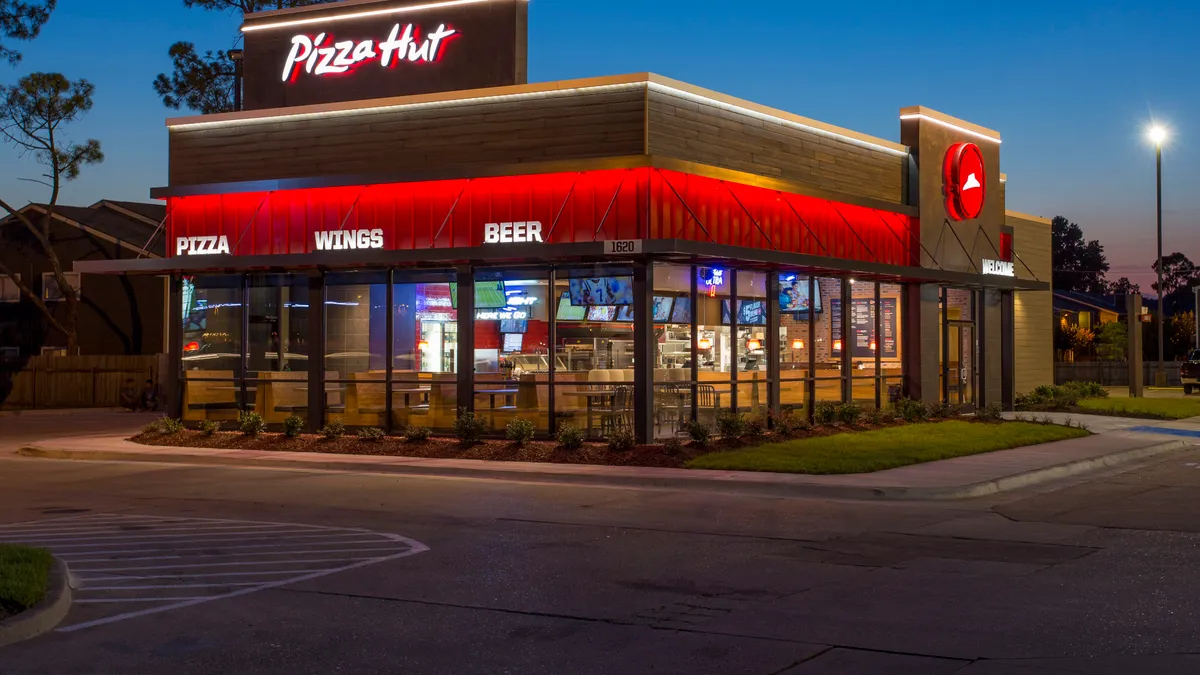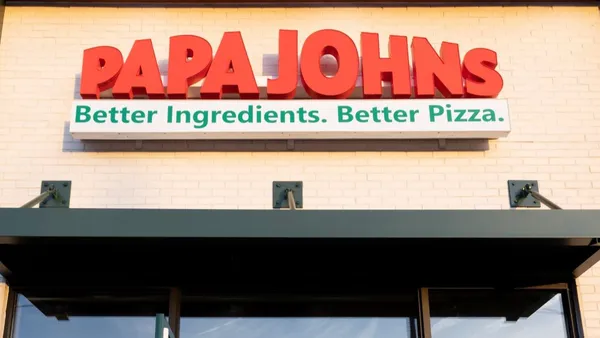Dive Brief:
- Yum Brands is accelerating its gender parity deadline to 2025 from 2030 after the number of women in senior leadership reached 47% at the company last year, which is faster than expected, the company said in its annual Global Citizenship & Sustainability Report released this week.
- The company also plans to build beyond its gender parity efforts by increasing diversity among its executive and management teams, franchisees and suppliers. In the U.S., Yum aims to increase gender diversity and hire more underrepresented people of color, including Black, Hispanic, and Asian-American individuals, as well as LGBTQ individuals in its corporate offices and company-owned restaurants.
- Yum's improved gender parity is no small feat, as a new World Economic Forum report shows the gender parity gap has increased because of the COVID-19 pandemic, a crisis which has disproportionately affected women.
Dive Insight:
This is just one of the many strategies included in Yum's ongoing efforts to increase diversity and inclusion. This year, the company also conducted assessments to identify gaps in achieving an inclusive culture, for example, joined the Publicis Media Once & For All Coalition to build its advertising presence for Black and Hispanic audiences and announced a new "Unlocking Opportunity" initiative that includes a $100 million investment through 2025 to fight inequality.
These efforts to strive for a diverse workforce could help position the company favorably for recruitment and retention, which is increasingly important as the industry contends with significant labor pressures.
Yum's gender parity work extends back more than two decades, as a founding member of the Women's Foodservice Forum in 1999, according to the report. It is also a longtime member of the Paradigm for Parity coalition and has been named to the Bloomberg Gender-Equality Index.
As it works to extend it's gender parity improvement to racial equality, the company required employees at each of its five brands — KFC, Taco Bell, Pizza Hut and The Habit Burger Grill — to create a diversity and inclusion goal in 2020. As part of that goal, Taco Bell launched five new employee resource groups in 2020, while all brands conducted listening tours to better understand employee perspectives.
Several markets have also developed their own initiatives to achieve equity, such as KFC Canada's proprietary program to encourage entrepreneurship among under-resourced immigrant and BIPOC cohorts.
Yum didn't disclose specific diversity targets, but for context Starbucks is aiming for at least 30% of its corporate staff to come from diverse groups. Yum does note people of color make up a majority of restaurant employees in its U.S. system, which it is hoping to translate to its corporate office. To achieve its targets, Yum joined the OneTen coalition, a group of U.S. businesses with a goal of creating career advancement opportunities for 1 million Black individuals in the next 10 years. It has also committed to the Hispanic Promise, pledging to hire, promote and retain Hispanics in the workplace. In 2018, Yum joined the CEO Action for Diversity and Inclusion, a coalition of CEOs committed to creating workplaces that address diversity and inclusion.













